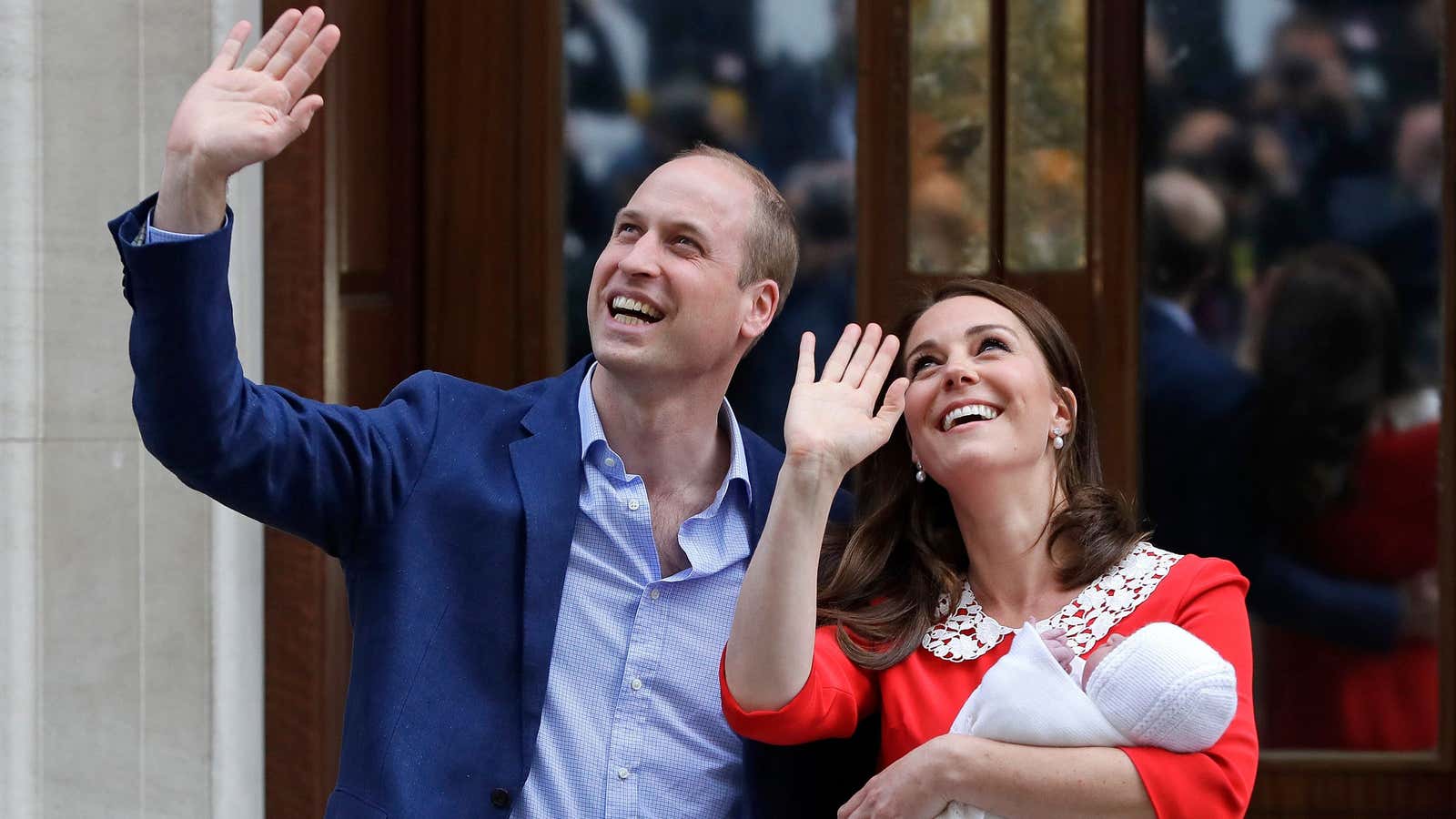After the birth of her younger brother earlier today, Princess Charlotte is now officially a middle child.
And if she wants to be Queen, she’s still got a chance—she remains the fourth in line to take the throne, after her grandfather, father, and older brother George.
While that may seem logical, it wasn’t always this way. A change to the Succession of the Crown Act made in 2013 essentially leveled the playing field for male and female newborns. Previously, male heirs always came first in the line of succession—even if born after their female siblings. But now the genders are all equal, which means that little princes no longer take precedence over their older princess sisters.
For Charlotte, this means she gets to retain her plum position in the direct line of succession for now, rather than be usurped by a new sibling who happens to be a male. Her great aunt, Princess Anne, had no such luck though; despite being the Queen’s second child, her two younger brothers (Prince Andrew and Prince Edward) are still ahead of her in the line of succession.
Indeed, though it’s been headed by a woman for the better part of a century, the British monarchy is not normally celebrated for its feminist principles. However, once parliament voted to change the rule—which had been in place since 1701 and also prevented royals from marrying a Roman Catholic without losing their place in line—it meant the gender of a child became irrelevant in deciding his or her place in the succession to the throne.
Unfortunately for Princess Anne, the rule change only applies to births after October 2011. The first royals to be affected by the rule were the children of the relatively little-known Lady Davina Lewis, whose daughter (born in 2010) and son (born in 2012) are 28th and 29th in line to the throne, respectively.
However, if and when Charlotte’s older brother George has a child, he or she will bump Charlotte down in the line of succession. When it comes to the throne, gender may not matter as much anymore—but the order of birth still certainly does.
